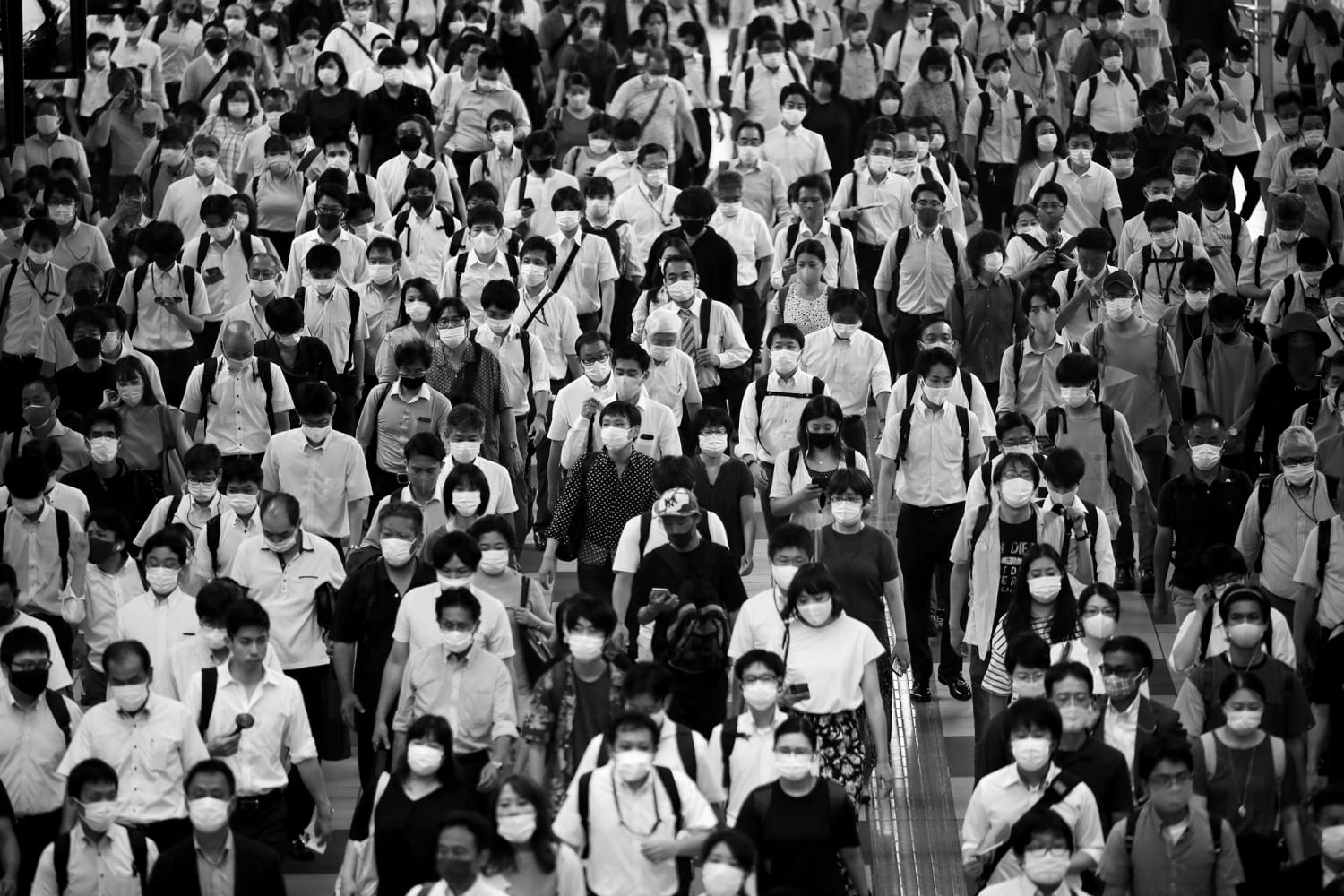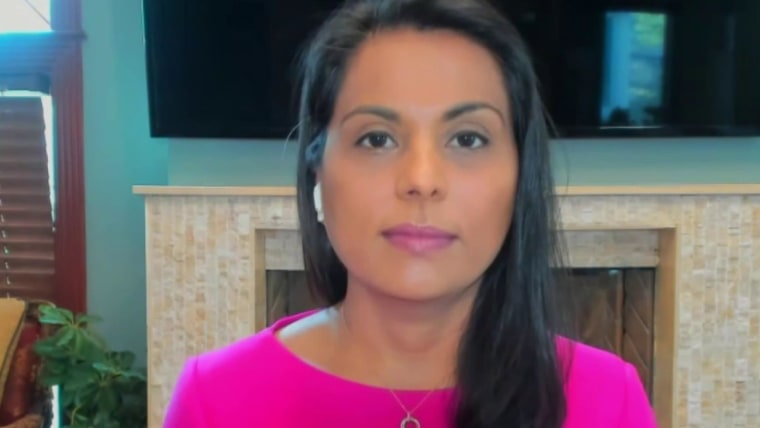Is it a quick-pick lotto ticket — 70, 80, 85, 90 — or just the ever-changing goal posts on the population percentage necessary to reach herd immunity against Covid-19? From the pandemic’s beginning to today, there has been a seemingly endless discussion by epidemiologists, virologists and pundits predicting various vaccination thresholds to eradicate or at least contain the virus.
it would be foolish to tilt at the windmill of herd immunity. Even as we seek to vaccinate as many people as possible, let’s be clear-eyed about the challenge.
The best estimates for herd immunity — the proportion of a population that needs to be immune from the virus so that the number of new infections decreases — establish a goal in the 60-70 percent range for the world community, with the possibility of needing at least 80 percent for the U.S. population. But as long as there are communities that still have very low vaccination rates (under 40-50 percent), Covid outbreaks will continue. So is herd immunity a realistic goal? And if not, then what?
Herd immunity occurs when so many individuals have been vaccinated or previously exposed to the virus that it has a hard time finding new people to infect. Such immunity has been achieved for other viral infectious diseases including measles, mumps and chickenpox, but the percentage of immunized people needed differs for each disease.
Because Covid has only been studied for some 18 months, the exact percentage required to achieve herd immunity is still being debated. Best current estimates suggest that if 70-85 percent of the U.S. population were immune, new cases of Covid would decline. But these estimates are likely to continue changing until we know more about how long the virus can persist in asymptomatic individuals and the potential for some variants to be carried and spread even by people who were vaccinated, both of which will help keep the disease in circulation for greater amounts of time.
Although vaccines are a triumph of science that will save millions of lives, there is reason to doubt whether they are enough to eradicate the virus completely from the globe. This is particularly true because a significant percentage of the U.S. population continues to be unvaccinated. According to a recent poll, 45 percent of Americans who have not been vaccinated say they do not have any plans to get the shot. Another 10 million Americans, nearly 3 percent of the U.S. population, are immunocompromised, meaning they may not develop immunity even if they are vaccinated or are too vulnerable to get inoculated in the first place.
This means millions of people are providing a potential new home for the virus and giving it the opportunity to mutate into new, more infectious variants. This is happening now with the delta strain, which is surging in the unvaccinated population, further challenging the herd immunity end goal. And there’s the danger that other variants could arise that bypass the vaccines or are even more infectious than ever.
Even if it were possible to vaccinate all U.S. citizens, other large unvaccinated populations capable of traveling to the U.S. pose significant continued risks. Successful vaccination of the entire global community, from the crowded streets of Los Angeles and Mumbai to the far reaches of the Savannah in Africa, is many years away. National and international travel is accessible and fast — “just what the doctor ordered” for Covid to find new homes in the traveler. Whatever hope there is for getting more Americans vaccinated, it is folly to think that the world will achieve herd immunity anytime soon.
This means we simply cannot afford to maintain the illusion that herd immunity will stamp out this pandemic. While it is imperative to continue distributing vaccines because they are proven to be safe and effective in preventing serious illness and death, we should not rely on vaccines alone.
The solution is investing in and doing the scientific and clinical research necessary to identify, discover and test new therapies. To win the war against this virus, we need safe, effective and cheap treatments. In the year and a half since the pandemic began, only one treatment has been fully approved by the Food and Drug Administration, remdesivir — an antiviral drug that stops the virus from replicating. But it is only approved for use in seriously ill hospitalized patients, and it is minimally effective.
Monoclonal antibodies, another therapy that’s been developed, can also save lives, but current guidelines restrict these injectable drugs to high-risk patients. Although lifesaving, their use requires access to advanced health care facilities that are not broadly or uniformly available. So for now, the Centers for Disease Control and Prevention treatment guidelines can be summed up as “stay home, drink fluids and call your doctor if you get worse or can’t breathe.”
The greatest scientific research and health care enterprise in the world can do better on this front.
There remains an unmet need for additional therapeutics that can be used in mildly ill or asymptomatic patients who don’t require hospitalization or advanced care — particularly in order to help them avoid progressing to a crisis state. Such agents might also reduce infectivity and save lives.
By analogy, we have effective outpatient therapies for influenza, like Tamiflu. Now, the goal should be developing comparable drugs for Covid that either target the virus directly (as in the case of Tamiflu), or target the inflammatory response to the virus (which is why dexamethasone, a generic drug, is already being widely used in hospitalized Covid patients).
Although the National Institutes of Health and the pharmaceutical industry are aggressively pursuing new treatments, there is more that can and should be done. It is time for the U.S. to establish a nonprofit group to make strategic recommendations to prioritize and study existing FDA-approved or generic drugs that may prevent the Covid inflammatory response and keep people out of the hospital. This same group can coordinate the sharing of data and clinical trial results, as well as cut through the artificial politicizing of drugs that should have never been identified as “red” or “blue.”
It is past time to collect the scientific evidence from careful study of generic drugs (like famotidine, ivermectin, dexamethasone and others) to learn whether they may be useful or not. Ranting opinions on social media are not helping those who are sick, but clinical trials, nationally coordinated and standardized, will. And if, and only if, any of these agents happen to be effective, there will be millions of beneficiaries.
Clinical trials are expensive, difficult to carry out and require significant regulatory and statistical oversight. Nonprofit health systems and research institute-led initiatives are essential to addressing whether existing FDA-approved medications might help those in need now, given that existing drugs don’t offer a new profit line, which is what drug companies seek. (The Feinstein Institutes for Medical Research, of which I’m president and CEO, has conducted 15 therapeutic Covid clinical trials and enrolled more than 1,700 patients to study the safety and efficacy of experimental Covid treatments.) Meanwhile, the pharmaceutical industry should continue inventing and developing new agents for Covid.
None of this is to undermine the importance of vaccines. They are a hugely important and tremendous achievement for science and humanity. But it would be foolish to tilt at the windmill of herd immunity. Even as we seek to vaccinate as many people as possible, let’s be clear-eyed about the challenge and bring therapies online that can help manage Covid infections, limit the need for hospitalization and reduce deaths.
Source: | This article originally belongs to Nbcnews.com










